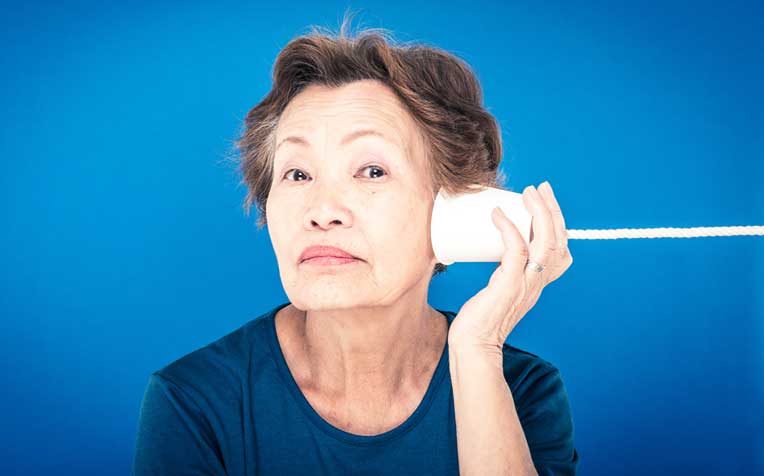
Seek early treatment if you noticed changes in your hearing.
A common joke goes: "Three old guys are out for walk. The first one says, "Windy, isn't it?" The second one says, "No, it's not Wednesday, its Thursday!" The third one says, "I'm thirsty too! Let's go for a drink."
In real life, this funny scenario is likely to play out more and more often here as hearing impairment is related to age, and Singapore is the fastest ageing country in Asia after Japan.
"Hearing loss is common in the elderly; about one in three people older than 60 years and half of those older than 85 years are significantly hearing impaired," says Associate Professor Low Wong Kein, Visiting Consultant, Centre for Hearing and Ear Implants, Singapore General Hospital (SGH), a member of the SingHealth group.
Apart from ageing, hearing loss has many other possible causes. Acute or prolonged exposure to noise can cause damage to the cochlea, the body's main and innermost hearing organ.
Causes of hearing loss in the elderly
Certain medications may also be culprits. For instance, Playboy mogul Hugh Hefner is said to be going deaf due to his extensive use of Viagra. Antibiotics, diuretics and cancer drugs are more common examples of drugs that can impact auditory function.
Simple earwax blockage could also explain why your mom or your dad has difficulty holding a normal conversation, speaks louder than normal or keeps the television volume too high. Get your loved one to see a doctor, as removing excess ear wax is a delicate operation best done with the help of a microscope.
A doctor will also be able to rule out the more infrequent hearing loss causes, such as a chronic ear infection, a hole in the eardrum, Ménière disease or otosclerosis (a bony growth of the middle ear).
Early detection of hearing loss is key
Early detection can be important. "Hearing impairment may be progressive, and in many cases, irreversible," says A/Professor Low.
Unfortunately, many hearing-impaired persons postpone consulting a doctor for years after they start noticing problems. This state of denial can carry dire consequences such as depression and social isolation, research has shown. If your parent avoids conversation and social interaction, it could actually be a sign of hearing loss.
If the doctor diagnoses a hearing impairment, your parent will be advised on possible ways to guard against further deterioration and to improve communication with others. The necessity to use a hearing aid will also be evaluated.
Treatment for the hearing-impaired
In some situations, surgical intervention may be more suitable. This includes surgery of the outer and middle ear structures to improve conduction of sound to the inner ear. Ear implants may also be considered in some patients. For example, a middle ear implant can work in people experiencing either a conductive (related to the external or middle ear) or sensori-neural (related to the inner ear) hearing loss.
In people with profound sensori-neural hearing loss due to inner ear damage, a cochlear implant can be considered.
After being fitted with a hearing aid or an implant, your parent will need to get adjusted to his or her new hearing environment. "With time and patience, the person tends to notice significant hearing benefit," says A/Professor Low.
Related article: Hearing Loss - Doctor Q&A
Ref: U11
Contributed by















 Get it on Google Play
Get it on Google Play